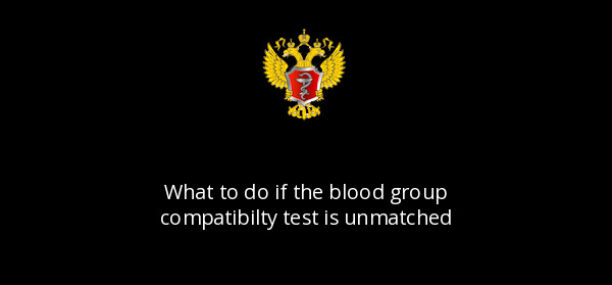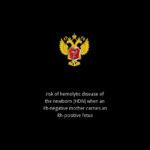If the blood group compatibility test between a pregnant woman and her partner reveals an unmatched result, indicating a potential risk of hemolytic disease of the newborn (HDN) due to incompatible blood types, several management options are available to mitigate the risk and ensure the health and well-being of both the mother and the baby.
- Consultation with a Maternal-Fetal Medicine Specialist: It is essential for the pregnant woman to consult with a maternal-fetal medicine specialist or a perinatologist, who specializes in managing high-risk pregnancies. These specialists can provide expert guidance and develop a comprehensive management plan tailored to the specific needs of the mother and the fetus.
- Regular Monitoring and Follow-Up: Close monitoring of the pregnancy is crucial to detect any signs of fetal anemia or other complications associated with blood group incompatibility. This may involve regular ultrasound examinations to assess fetal growth and well-being, as well as serial measurements of maternal antibody titers to evaluate the risk of fetal hemolysis.
- Intrauterine Transfusion (IUT): In cases where the fetus develops severe anemia due to maternal-fetal blood group incompatibility, intrauterine transfusion (IUT) may be considered. During an IUT procedure, red blood cells are transfused directly into the fetal circulation via ultrasound-guided needle insertion into the umbilical vein. This intervention can help correct fetal anemia and prevent adverse outcomes associated with severe hemolysis.
- Preventive Measures: Depending on the severity of the blood group incompatibility and the presence of maternal antibodies, preventive measures such as administration of intravenous immunoglobulin (IVIG) or plasmapheresis may be recommended to reduce the risk of fetal hemolysis and subsequent complications.
- Delivery Planning: The timing and mode of delivery should be carefully planned based on the gestational age of the fetus, the severity of the fetal condition, and other maternal and fetal factors. In some cases, early delivery or cesarean section may be indicated to minimize the risk of fetal complications.
- Neonatal Care: After delivery, neonatal care should focus on promptly diagnosing and managing any signs of hemolytic disease in the newborn, including jaundice, anemia, and hyperbilirubinemia. Phototherapy, exchange transfusion, and other supportive measures may be necessary to treat neonatal complications associated with blood group incompatibility.
The management of blood group incompatibility during pregnancy requires close collaboration between obstetricians, maternal-fetal medicine specialists, neonatologists, and other healthcare providers to ensure optimal outcomes for both mother and baby. Individualized care plans should be developed based on the specific circumstances of each case, with the goal of minimizing the risk of fetal complications and facilitating a safe and successful pregnancy outcome
Verified by: Dr.Diab (March 29, 2024)
Citation: Dr.Diab. (March 29, 2024). What to do if the blood group compatibilty test is unmatched. Medcoi Journal of Medicine, 1(2). urn:medcoi:article33015.













There are no comments yet
Or use one of these social networks